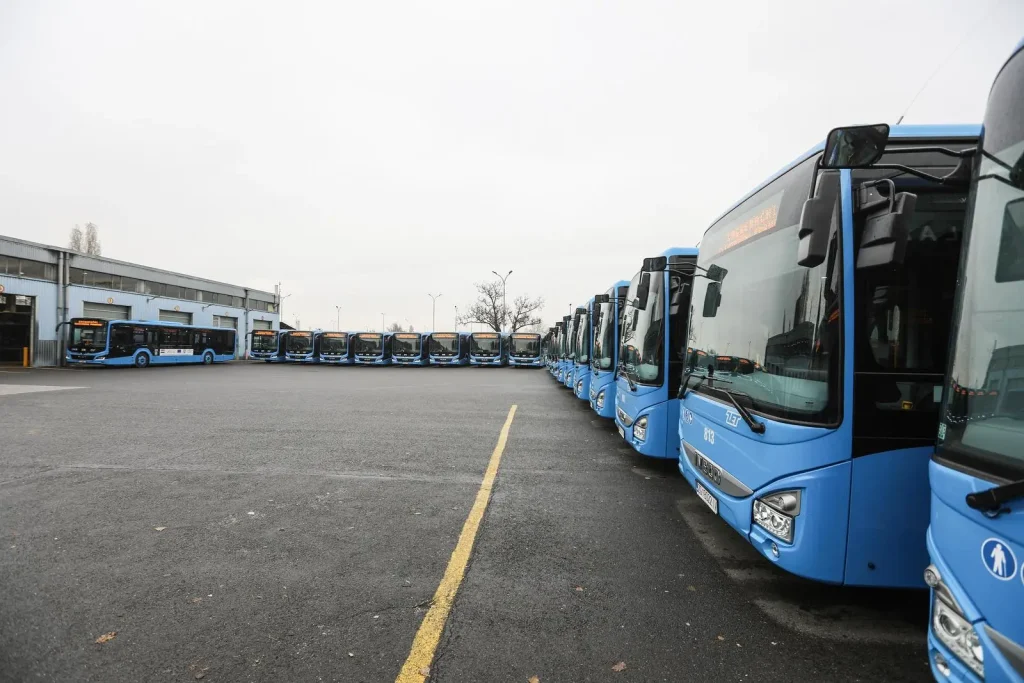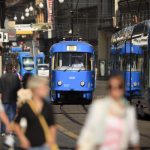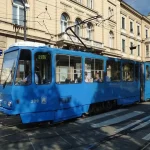As Poslovni Dnevnik writes, as part of the JIVE2 project, organised by the national coordinating body of the Croatian Hydrogen Association and the project partner, the Hydrocarbons Agency, the final event of the demonstration CEE bus roadshow was held recently in Zagreb’s popular Nikola Tesla Technical Museum, which covers three geographical areas of the EU (Central and Eastern Europe, Poland – the Baltic region and Southeastern Europe).
This is part of an important EC (Clean Hydrogen Partnership) project, which aims to encourage the commercialisation of hydrogen-powered buses, i.e. the procurement of 300 hydrogen-powered buses in accordance with the European Strategy for Sustainable Mobility and the European Hydrogen Strategy, and which is financed by the Clean Hydrogen Partnership with the support of Hydrogen Europe. The manager of the project is H2LV – the Latvian Association for Hydrogen, while the technical partners in the project are the Messer Group and CaetanoBus.
Through the JIVE2 CEE bus roadshow project, the City of Zagreb and ZET d.o.o., they got the opportunity to test these technologies in real driving conditions, collect a large amount of data (telemetry), all with the aim of making future informed decisions regarding the modernisation of the Zagreb public transport offer, more precisely the ZET bus fleet.
The president of the Croatian Hydrogen Association, prof. emer. Frano Barbir, Ph.D., said that the transition of the vehicle fleet of public carriers across Europe from the existing fossil fuel-powered drive to clean energy sources such as hydrogen is still in its infancy, and he highlighted the lack of infrastructure that would support hydrogen-powered vehicles as the main problem.
Hydrogen, as an energy carrier, has great potential for decarbonising numerous sectors of the economy, especially where batteries aren’t technically possible or end up being a more expensive solution. One of these sectors is the public city transport sector where hydrogen, used in buses with fuel cells, enables high performance and provides a level of comfort for passengers, all without emissions of greenhouse and other harmful gases, particles and noise.
Bearing in mind that back in May, through the “REPowerEU Plan”, the EC secured additional investments of 200 million euros available for the Partnership for Clean Hydrogen through the Horizon Europe programme, and announced future measures for development. This is now an opportunity to use the funds for the decarbonisation of the Zagreb public transport offer.
Croatia took a significant step in this direction by connecting with neighbouring countries in the establishment of the North Adriatic Hydrogen Valley. It is precisely the funds from REPowerEU that strongly support the increase in the number of hydrogen valleys and all the projects that are being implemented within this initiative.
”This is the first step towards the implementation of the Croatian strategy for hydrogen, which we adopted back in spring this year, and I’m extremely happy that we’ve already taken the first steps. We’re extremely honoured that the Croatian Hydrogen Association, as the national coordinator of the JIVE 2 CEE bus roadshow project, is part of the initiative towards Zagreb’s decarbonisation,” said sc. Ankica Kovac, vice president of the Croatian Hydrogen Association.
For more, make sure to check out our dedicated news section.











